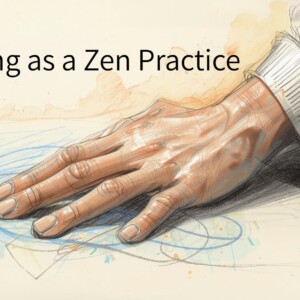
Washing Dishes as a Zen Practice: Finding Mindfulness in Everyday Moments
Can washing dishes truly be a form of meditation? In the world of Everyday Zen, the answer is a resounding yes. Often dismissed as a mundane task, washing dishes as a Zen practice offers a powerful opportunity to be fully present, calm the mind, and connect with the moment.
In this article, we’ll explore how this simple act—done with mindfulness—can become a gateway to stillness, simplicity, and spiritual renewal.
The Philosophy Behind Everyday Zen
Zen teaches that enlightenment is not found in exotic places or extraordinary moments, but right here—in the present. Everyday actions, when done with full awareness, become sacred. Whether you’re cooking rice, sweeping the floor, or washing dishes, every task holds the potential for awakening.
As Zen master Thich Nhat Hanh writes:
“The idea that doing dishes is unpleasant can only occur when you aren’t doing them.”
Why Washing Dishes Can Be a Zen Practice
Washing dishes isn’t just about cleaning plates—it’s about cleansing the mind. When you turn off distractions and bring your full attention to the task, you cultivate presence, patience, and peace.
Key Benefits of Washing Dishes Mindfully:
-
Reduces mental stress and anxiety
-
Strengthens focus and intention
-
Transforms daily routine into spiritual practice
-
Creates a natural rhythm of breathing and awareness
Step-by-Step: How to Wash Dishes the Zen Way
Let’s break it down into a simple practice you can integrate today.
1. Set the Intention
Before you begin, take a breath and acknowledge the task. Remind yourself: This is not a chore, this is my practice.
2. Engage Your Senses
Feel the warmth of the water. Smell the soap. Notice the sounds of clinking dishes and running water.
Zen Tip: Slowing down awakens your senses. Don’t rush—just observe.
3. Be Present with Each Dish
Wash one item at a time. Give your full attention to the plate or cup in your hand. Treat it with care and appreciation.
4. Breathe Naturally
Let your breath guide your pace. Inhale slowly, exhale softly. As your mind wanders, return gently to your breath and movement.
5. Appreciate the Completion
When you finish, take a moment to appreciate the clean dishes and the clarity of your mind.
Common Obstacles (and How to Overcome Them)
Even with good intentions, it’s easy to slip into autopilot. Here are some tips:
-
Feeling impatient? Use it as a cue to slow down even more.
-
Mind wandering? Label the thought “thinking” and return to the present.
-
Rushing? Remind yourself that speed is not the goal—awareness is.
This is the essence of Zen: returning again and again to now.
Zen Is in the Ordinary
You don’t need incense, robes, or a mountaintop retreat to experience peace. You need only presence. Zen is not about escaping daily life; it’s about entering it fully.
As you wash the dishes, you’re not preparing for meditation—you are meditating.
Final Thoughts: Make Washing Dishes Your Mindfulness Anchor
In a world that prizes speed and productivity, washing dishes as a Zen practice is a radical act. It reminds us that peace is always within reach—so long as we’re willing to stop, breathe, and be.
Every plate you scrub becomes a mirror for your mind. Every rinse, a moment of renewal.
So next time you reach for the sponge, ask yourself:
Can this be Zen?
🌿 Want to go deeper into Zen and mindful living?
Explore ZEN for LIFE — a gentle guide to bringing presence, simplicity, and calm into your everyday routine.
Now available on Kindle.
#ZENforLIFE #MindfulLiving #EverydayZen









この記事へのコメントはありません。